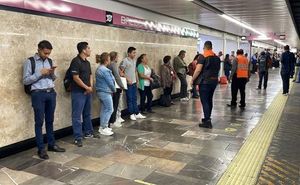California is leveling up safety measures for young passengers traveling alone, particularly through ride-hailing services like Uber. The California Public Utilities Commission (CPUC) has mandated new regulations requiring drivers who transport unaccompanied minors to undergo fingerprint-based background checks. This ruling, which Uber has been scrambling to respond to, provides the rideshare giant just 30 days to comply if it wishes to continue its services for teenagers.
The intent behind this decision is crystal clear: ensuring the safety of minors. The CPUC’s order emerged from concerns about the potential risks minors face when being transported by adults, emphasizing the position of trust and responsibility placed on drivers. The ruling states, “When an adult is being tasked to provide a service to a minor, the adult is placed in a position of trust, responsibility, and control over California’s most vulnerable citizenry — children.” Without thorough background checks, unaccompanied minors could end up getting rides from individuals with disqualifying criminal records, significantly heightening safety risks.
Uber has been here before. Back around seven years ago, the company, along with its competitor Lyft, successfully fought against similar regulations aimed at implementing fingerprint background checks. They argued then, and continue to argue now, claiming their existing name-based system meets sufficient safety standards. Uber's current security processes are said to include name-based checks, backed by their partner, Checkr, along with safety features such as live trip tracking—specifically developed for their newly launched feature called Uber for Teens.
Launched earlier this year, Uber for Teens allows children aged 13 to 17 to hail rides without needing constant parental supervision. An adult must, nevertheless, offer prior consent for minors to use the service. A CPUC letter even cautioned Uber against operating this service until it could clarify compliance with regulations established back in 2016, which outlined strict background checks for businesses primarily focused on transporting minors.
While Uber itself states less than 10% of its rides involve unaccompanied minors, the risk involved has led to heated discussions surrounding whether the company should join the Department of Justice’s Trustline program. This registry, managed by the California Department of Social Services, is built to screen caregivers for criminal records and suspected child abuse effectively. The pressure is on Uber to demonstrate how it plans to protect minor riders beyond its current measures.
The fallout from this ruling may also have financial consequences. Uber has raised concerns about the costs associated with compliance, pointing out how mandatorily implementing fingerprint checks could drive fares up for teen riders. Yet, the CPUC stressed the obligation lies with the companies to absorb the costs, mandatorily ensuring their services don’t become financially prohibitive for families. This is part of the CPUC’s broader effort to hold ride-hailing companies accountable for their operations and safety practices.
Interestingly, these new requirements are not just bad news for Uber. HopSkipDrive, a startup focused on transportation services for kids, could see gains from this shift. The company, which already employs rigorous vetting processes for its drivers including fingerprint checks, has eagerly supported this ruling. HopSkipDrive refers to its drivers as “CareDrivers,” and they undergo extensive training, aligning closely with the CPUC's interests in ensuring minors are transported safely. Their model, integrating telematics to monitor driver behavior and offering live tracking of rides, presents another layer of security.
HopSkipDrive’s operational practices set it apart from the likes of Uber by demonstrating its commitment to safeguarding children. They not only cover the expenses for background checks but also have proactive post-ride support , positioning them as significant players within the niche market of transporting minors.
The CPUC ruling also stipulates the companies meet additional delivery standards like informing the agency about pickups and drop-offs, implementing necessary live tracking features, and providing specific driver training about transporting minors. All these operational requisites paint a comprehensive picture of what is required going forward.
Uber, possessing roughly $150 billion market cap as of December 2023, is now grappling with the push from regulators and parents alike who expect maximum safety when their children are on the road. Given past resistance to implementing fingerprint checks, the rideshare behemoth’s next moves will be closely watched. Pressure grows, particularly when considering the serious allegations against the company pertaining to past incidents, such as the lawsuit filed by two families claiming their daughters were driven across state lines to predators.
The reality of ride-sharing dynamics and the safety of young passengers has been brought to the forefront, with the stakes never higher. The outcome of these developments will shape regulatory practices and corporate responsibilities well beyond California. The challenge for Uber will be to balance operational business strategies with enhanced safety measures demanded by the market and regulators.
While the road to compliance for ride-hailing companies may prove rocky, the emphasis is undeniably clear: unaccompanied minors deserve protection, and companies must adapt to meet these societal needs. The future of ride-sharing for teens will likely hinge on how these regulations are implemented and adhered to, redefining the standards for safety and responsibility across the industry.



